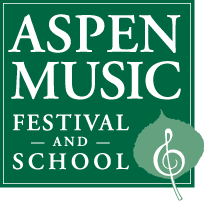« Concerts in Parks | Main | Response to Sam Bergman »
July 26, 2006
Free = Cheap. An American Reality
by Andrew DruckenbrodLoved Klaus' comments, but I wanted to comment on pricing, already given insightful thought above in the thread. This is a fascinating subject -- far more complex than I ever thought when I first delved into it as a critic.
At the base of the issue, in my opinion, is that, with everything else orchestras have to worry about, they should not have the added burden of being agents of social change. Offering free tickets is social policy. It is not the way the free market works and it carries with it many associations. The greatest is that Americans don't respect something that is free. Oh, we may take it once or twice, or more, but we don't respect it. At least not most of us. With the exception of special events like park and summer outdoor concerts, there should always be a price for admission. (comparing this to the free museums of London are just as problematic as comparing the governmental funding of orchestras there to ours. There are many differences to take into account.)
Americans tend to view quality in relation to price. If it is free, it is cheap. Furthermore, we are wary of "free offers," wondering what the catch is. Frankly, there usually is a catch! Once you are in the hall, the orchestra starts telling you how (sometimes from the stage itself, sometimes in programs) the only way the ticket prices are free, or even remotely affordable, is because of people who donate money, and you should be like them! A big guilt trip and big catch, even if it is true.
So, how to handle pricing? I am sure that there have been some good experiments on this over the years, however perhaps stratified pricing is the answer - but changed from what is typical now. Classical music has always been socially stratified, just like our culture, and orchestras can't change that. A significant amount of people exist who want to pay a lot for a ticket because they want to feel they are getting that top-notch experience for that fun night out. It's the same with 5-star restaurants. Most of us have felt this at sometime, especially when we venture out to something else we are less familiar with. So perhaps radically reduce the price of the B seats in the hall (placement-wise, not necessarily sound-wise), so that at least some payment is made, but it is competitive with movie theaters. And then keep the A seats (again, in placement, such as balcony) in the higher range (not too high, but substantial) and then offer extra incentives for these, like a special reception room or parking arrangement for them. I think, actually, many orchestras do this last part. It's especially good when a musician or two attends the reception as an added benefit.
So is this an elitist suggestion? No! It is a reflection of the market. Every pop/country/hip hop concert is this way; Broadway and other arts, too. We can't berate orchestras to be more market savvy, and then turn around and say it is elitist for them to cater to different patrons differently.
Some want to come for the music; some want to come for the social experience (whether we like it or not, "being seen" is still a large reason why many attend classical concerts). Some don't have much $$, some definitely do. There are music lovers in either category (and there are other categories, of course). But, even as I posted above about how the institutions need to always be changing, stratification has been a constant from the early days of concerts and operas going public. Pricing won't drive it, that stratification is already there. I know that subsidizing anything is difficult for administrators, but I think a two (or more) tiered price structure, with very low minimum, but a high roller's option might not be a bad idea and might fill halls from both directions.
Then again, all of my tickets are comps, so what do I know...
Posted by adruckenbrod at July 26, 2006 06:03 AM
COMMENTS
Post a comment
Tell A Friend


